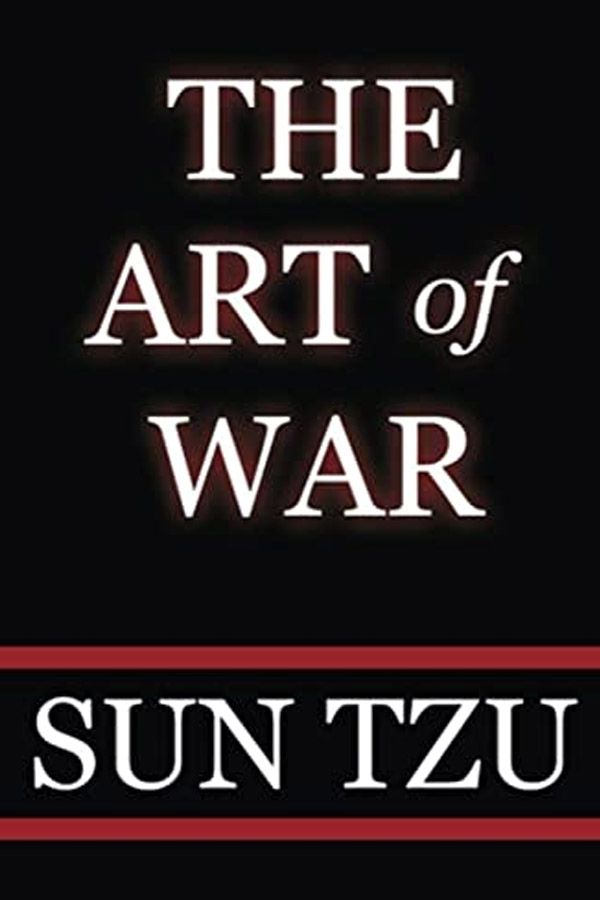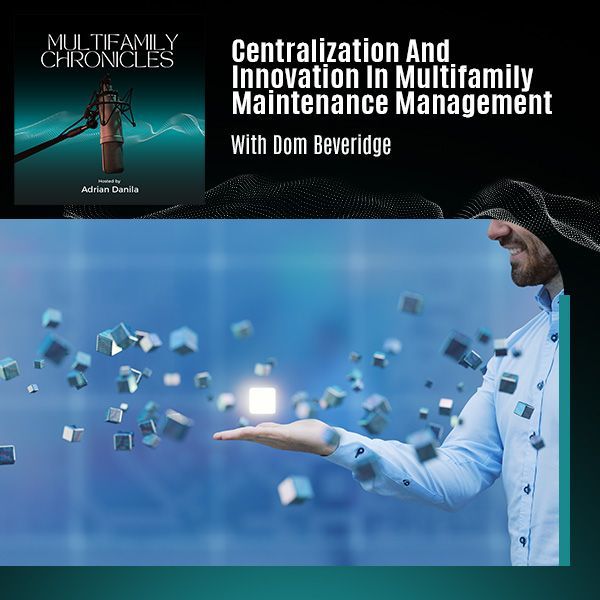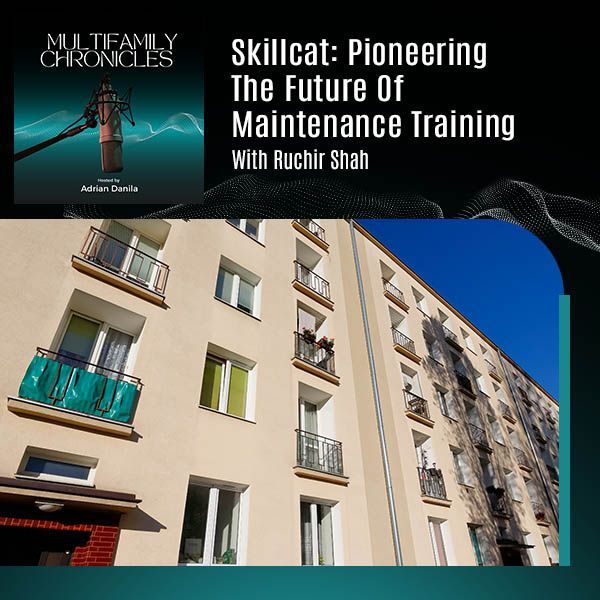Growing Talent: Overcoming The Industry’s Talent Shortage With Chiccorra Connor
We have reached a point where talent shortage can no longer be overlooked in the industry. Having a company set on supplying this piece is therefore very important. In this episode, Adrian Danila shines the spotlight on Chiccorra Connor. She is the CEO and Founder of Occupancy Heroes Incorporated, a company that, aside from helping owners improve and maintain their occupancy rates, also developed a licensed maintenance program that trains and employs individuals. Chiccorra shares the amazing things they’re doing to help the industry as well as giving us a peek into her life as a leader, public speaker, and mentor. She then talks about what we can do better as an industry to overcome these pressing challenges. Follow along to this great conversation and find out the opportunities we can do to make a difference in people’s lives.
---
Watch the episode here
Listen to the podcast here
Growing Talent: Overcoming The Industry’s Talent Shortage With Chiccorra Connor
My guest is Chiccorra Connor. Welcome to the show, Chiccorra.
Thank you for having me.
Chiccorra, you are the Founder of Occupancy Heroes. Tell us a little bit about the Occupancy Heroes, and please tell us a little bit about yourself, about your background, professional and personal.
If you were to Google me, you find that I’m the CEO and Founder of Occupant Heroes Incorporated, but I am so much more than that. I am a very happy wife, a mother, and a grandmother. A Charlottean, a woman of integrity, and a champion of affordable housing. I’m an advocate for diversity and inclusion. I have a passion for helping others to succeed.
Occupancy Heroes Incorporated was founded in 2003. We incorporated in 2005, and basically, we make money. That’s what we do. We help owners to improve and maintain their occupancy rates. When we first started, our heart, our core, and it still is of Occupancy Heroes is increasing occupancy. We do it 2 to 3 times faster than companies that are currently doing it on their own. That includes leasing, marketing, and training. Back in 2005 is when we took a step back and we incorporated because we said, “We’re leaving money on the table for our clients.”

When we did that, we brought on our compliance specialists, our staffing division, and our maintenance heroes division, which is all things maintenance. It’s full-service. It’s a total solution for the multifamily industry. We also teach and train. I’d say we’re community builders. We’re bringing people into the industry and helping families.
You have an amazing background and an amazing story. Thank you for sharing with us. I want to ask you. What does it take to be a successful entrepreneur?
It takes so much. It takes a strong desire and ability to follow through. It takes knowing when and how to pivot. Let’s look at COVID. You got to know how to pivot. It takes a strong person, a person that is unwilling to give up and remains unwavering in their pursuit of success. It takes a very creative person that’s going to remain steadfast in their beliefs. It most definitely takes a lot. I don’t know what it doesn’t take to be a successful entrepreneur.
Chiccorra, I would like for you to go back a little bit and give us more insight into some great things that are happening at Occupancy Heroes. What are some exciting things that you would like to share?
We’ve got a lot going on. Let me pick one. One thing we’re speaking about, and I’ll talk about it because it’s happening right now in the present moment. People are moving. It is our apprenticeship program and our training division. We added another training facility in Charlotte, North Carolina. It’s about 4,000 square feet. It is awesome. It’s got separate training rooms for every trade and it’s going to be amazing.
That’s a big thing. We are setting those rooms up right now. We have a space that is literally set up like an apartment. You go in, you walk into the living room, the bathroom, and all that. Now, we’ve got it spread out, and we’ll be able to host more classes to get people trained and certified. That’s what I’m excited about right now.
You have a mockup apartment inside your facility and your trainees are doing real-life training. They’re working all the stuff that they will be working in apartments when they do the work. That’s amazing and very exciting.
We got classrooms too. It’s both hands-on and it’s classroom-style. We take them outside of the classroom too. They’re working out in this world.
Next time I’m in Charlotte, I would love to make an extra couple of hours to come to visit with you at the facility.
Absolutely. We’ve been trying to make it happen, but we got to make it happen, Adrian.
Maybe we will do a video with a presentation of your facility because I always get excited, especially when it comes to all things maintenance. As you know, my background is in maintenance mainly. I started as a groundskeeper and worked my way up. One thing that our industry suffers from is the lack of personnel, first of all, but it’s not as simple. I don’t want to simplify things. It goes beyond that. It goes, “What is causing the shortages of qualified personnel?” There’s pay and work environment but one important thing that’s out there that our industry is not talking about enough is that we don’t grow our own. Do you disagree?
I agree 100%.
For a company like yours to come up with supplying this piece which is growing talent and providing that as support for the industry, that’s something phenomenal. That’s something that I’m very passionate about. I would advertise. I would like to get a word out with the public and hopefully, more companies will follow, whether they’re management companies or on a vendor supplier side because we need this badly.
We do. Look at where we are now.
Chiccorra, you’re also a national speaker and you’re very involved with the National Apartment Association. I would like for you to share with the audience some of the great apartment industry programs and initiatives that you are involved with.
You are right. I am very involved with the National Apartment Association. I am heavily involved in the NAA D&I Program. I play a large role in the webinar series, and I helped to get that off the ground in 2020 while we were dealing with the pandemic and everything else that was going on in the world. That was hugely successful. That webinar series came in only second to the pandemic webinar series. That was huge.
I’m also very involved in careers because I am all about careers and I’ve been involved in membership. As far as the D&I program, when we first started and getting things on the website, we had a piece in there for best practices, the white page for best practices at Occupancy Heroes. We wrote up some stuff, and it was there for all of the members to pull. I’m also a mentor because I love mentoring. I have had great success with the mentees that I’ve worked with in NAA. It’s a lot to speak about, but for sure. For anybody reading, get involved. It’s going to make the world different.
What does it take to become a public speaker, Chiccorra? What do you think are some traits or characteristics that you got to develop or work on to become a speaker?
To become a speaker, you got to get out of your head. That’s one thing. It takes practice. I know it’s crazy. People are thinking, “What? I’ve got to practice speaking,” but in fact, you do. I went through a train-the-trainer course, and that’s the only course that I ever went through. I was speaking, and it was at one of the associations. You know how some people say um and hmm. I was saying a word, “You know what I’m saying?” That’s what it was. In everything I said, I was like, “You know what I’m saying?”
To become a speaker, you got to get out of your head.
With that being said, you have to be critiqued. Don’t step out there on stage because you want to keep a person’s full attention. It takes a lot of preparation. When we’re speaking, we put a lot into it. People don’t realize that you want to come up with some good data. Something that people can walk away with. For a 45-minute presentation, it may take 3 to 4 hours of preparation. It takes a lot, but it’s worth it because you’re educating the masses.
You’re making an impact. That’s part of what we will create the most as human beings. It’s legacy. It is what we leave behind. Our time on this Earth is limited. No matter what we do, we’re not going to be around forever. The way we pass this along is to our children and through the people that we influence their lives. This is a wonderful way to do it, to leave a legacy.
If you’ve ever heard me speak or even on my social media pages, I speak about creating a legacy, generational wealth, and things of that nature. It’s extremely important. When you Google your name, what do you see? What does your family see? Those things are important. I speak about Dr. Jackiw. She created a foundation. It’s a scholarship that she helped create for the NAA. It helps to educate people. It finances and funds them in getting their cam and different things of that nature. That’s important. She created a legacy for herself. She didn’t only say, “I’m the president. Now, I’m out.” She’s touching so many other people, and that’s amazing.
Chiccorra, you’re one of the most self-driven individuals that I’ve ever met. I wanted to say to the audience, we never met in person yet but we’ve been part of certain events and programs together. I feel like we met a long time ago or we met many times, even though we didn’t meet in person. I wanted to ask you, what drives you, Chiccorra?
It’s people, plain and simple. Also, knowing that I’m making a difference in the lives of so many people. That might be cheesy, but that’s my reason.
What would be the pieces of advice that you have for someone, a young person that’s ready to enter the real world to go out there, get their own apartment or get their own house, or get a job? What is one or more pieces of advice that you have for the young person?
Number one, I’d say be authentic. Don’t conform to what others want you to be, and never stop learning. This world is hard, and you’ll have competition at every corner. It’s not going to stop. They’re going to be there. Stay prayed up and be prepared. I’m going to give you one thing that my father told me. When I started Occupancy Heroes, my father said to me, “Always make sure that you have six months of income in your account.”
When I went out and I got married and all that funky stuff, he said, “Make sure you got three months to stay afloat. That’s all of your bills. That will be your rent, your utilities, and all those things,” but he went deeper like payroll and everything. To all young people, make sure that you are secure. Adrian, you spoke about your first apartment and things of that nature. Make sure that you have the finances. Don’t just step out there. Be prepared.
Have a backup plan. With leadership, what pieces of advice would you have for someone that wants to move up into a leadership position to become a successful leader?
I would say to them to focus on themselves. Work on building character and humility. Remember that we cannot lead anyone if we cannot lead ourselves. As leaders, we have to be able to look at ourselves and identify the positives and the negatives. Take a step back and look at yourself. To this day, I still go to family, friends, and colleagues, and I ask them, “Tell me something about me. What do I need to work on?” I need to be able to take that criticism because it’s not always nice but I take it. I look at it and I see how can I improve. Before you can step into a leadership role, you’ve got to be able to look at yourself. You’ve got to be able to lead yourself. That would be my first bit of advice.
Before you can step into a leadership role, you've got to be able to look at yourself. You've got to be able to lead yourself.
We touched a little bit at the beginning about the labor shortage challenges that we have in our industry. This has been an issue for the industry of some magnitude before COVID hit. With COVID, things have accelerated to a level that probably, if I had to guess and based on what I’m seeing in numbers and talking to people, we might be experiencing employee turnover rates in the 70% range. The staff shortages are horrendous out there, especially at the site level. I would like to get your take on how you think we got here. Do you think this is almost behind us? Is it going to be around for a while? What can we do to make it a little less painful to alleviate the pain?
I’m going to say this, Adrian, and it might hurt some feelings. Before I say this, this is what I’ll say. I’ve been in this industry for a very long time. We spoke about legacy. This is legacy. My grandparents, my parents, all of my siblings, my children, my niece, and my nephew are all in this industry. It’s a lot of us. In my company itself, we travel nationwide working with owners and management firms to help increase both their physical occupancy and their employment occupancy. I think I got a little room to speak on this.
I don’t want to offend anyone, but this is my take on it. I feel that we got here because we don’t care about people and that may sound harsh, but it’s a fact. We have underpaid our employees since I can remember, and I’ve been doing this thing since I was a little girl. Let’s think about it. People can choose to work elsewhere for much more money with way fewer responsibilities. Look at maintenance. We require them to know HVAC, plumbing, electrical, basic maintenance work, and preventative maintenance work.
We want them to be on call as much as possible. We want them to move quickly, and we want them to have great customer service. These same maintenance technicians can go down the street, sometimes the directly across the street and get paid double, if not more just to know one single trade and then not be required to do anything else. Everything that we ask our maintenance teams to do, it’s out the door. They don’t even have to know that knowledge.
We have to be more competitive and yes, I know we offer great perks but still do the trade jobs. They offer great perks too. All of these people, these other training companies that they’re running to, they’re getting a lot of the same perks. What I’m saying is that we have to have a heart, and we have to start treating people like the heroes that they are. Property managers are therapists. They’re bankers. Sometimes they are a whole new set of parents for many of our residents.
The government classified us as essential workers so let’s treat our people like they matter. We have to make a difference in the world. I think that making a difference by sincerely caring and being concerned about our employees, their families, and their wellbeing. “How are you doing now?” Being sincerely concerned about people is going to make a world of difference. It’s going to improve the labor shortage but until we do that, we’re going to be in the same situation.

It’s because all we’re going to do is we’re going to try to recycle people. I got to say this, one thing that we do is before our people, our trainees can get certified, before any of that, in the apprenticeship program, they have to work on the property. The stories that you hear were from the people walking in. I’m going to tell you this one because it touched my heart because it’s my son. My son Joshua was going through the training program. He is going through the apprenticeship program. He worked on the property and he loved it. He’s like, “This is great.”
Some properties he’d go to and he’d say, “The people are wonderful. They’re amazing.” Our people would get hired on at these sites, and other sites he would go to, he would say, “I cannot believe people treat people this way.” Literally one day, my son came in and he was almost in tears. He said, “Mommy, how do people treat people this way? How do they not care?” He spoke about little things. They were on-site, and the staff ordered pizza. The maintenance team came in and they told him, “Get out of here.”
It’s bridging that gap and they didn’t know that this was my son. They didn’t know any of these, who he was, or what was going on but he took a step back and he said, “The way that they treated me and the way that they treated other people, Mom, they identified us as the temp. They would not say our names.” He was floored. There was a guy who came in and he had a nice truck, and he had this, and he that. The whole attitude changed.
We have to treat people as equals, number one. We have to treat people like they’re real human beings because it is the right thing to do. Number two, you never know who you’re entertaining. On this one particular property, the team that we sent there, they were amazing. We bring in industry people who have years of experience to assist with the training and these guys were on point. In the end, they wanted to hire them all and they needed people. They didn’t work there. They rejected the job. They went to another industry. They all are working with an HVAC company now.
That was about eight people on one site and this one company is still calling us now because they want people and they need people. The reason why they’re not being successful is because they don’t know how to treat people. Until we treat people with concern and care in real life, this is what we’re going to get. You ask, is it going to stay here? Until we know how to behave, yes, they will stay. I know that sounded harsh, Adrian, but you asked.
I can’t even begin to tell you how much I truly appreciate what you said because I’m having similar conversations with all types of industry leaders, and people in the industry. I get direct messages on LinkedIn from people saying, “I wish I would’ve liked your post. I’m afraid that my company is going to retaliate against me because I liked the post that’s not in line with their corporate slogan and thinking because you’re speaking the truth.”
I think until we start speaking the truth until this becomes a mainstream conversation for all of us, we not going to make any type of progress. We going to be believing our own press and lying to ourselves and this is not how you solve problems. The first step that you got to take is open up and be brutally honest about what the situation is and then we could start to build upon that.
If we don’t acknowledge our faults, and our shortcomings, we will never going to get into a better position. That is the very first step and it’s not a necessary step. It’s a mandatory step. If we’re not passing that stage in the conversation, we are never going to see any improvement. We will always be stuck in the past and things will only get worse for us. I truly appreciate the insight. If it’s very deep, it’s very important to me because I’m seeing the same things I’ve experienced firsthand.
I have had people that have experienced people share with me all the time. Again, not publicly, but I always behind the scenes communicate with all sorts of people in maintenance, especially because you did mention maintenance. There’s no reason why we shouldn’t treat our maintenance personnel, our coworkers, the same as we treat everybody else. They’re not secondhand citizens. There are people with 10, 15, and 20 years of experience. Those people are bringing to the table, most of them over average skills than any other person.
Most people that are looking for management to gauge their performance, they can’t because they don’t have the type of background. They don’t understand. In order for someone to become a very successful, very good maintenance technician and very good at what I do, it takes 5, 10 to 15 years of hard work and learning. You don’t treat anyone like that with disrespect. I wanted to say, regardless of their skillset, you do not treat anyone like that. You do not mistreat anyone. You shouldn’t.
As you said, let’s look at ourselves, and our fellow humans as human beings, not as someone that’s disposable as you said is the temp. Whenever someone looks at and says “temp” it’s like they’re here for a short period of time. They are disposable. They work for us. We pay the company. We could bring more temps in. That only goes so far. You going to run out of temps and people that want to put up with bad attitudes and disrespect.
Adrian, I can say this too. I think that we may all be guilty of something. The one thing that I can say that I was guilty of, and this was literally over many years ago. Many years ago, I was a property manager and I will never forget this. His name was Lenny. It was my maintenance supervisor. I was on the property and I had to get these units turned. At that time, there wasn’t a lot of scheduling out and all of that. The maintenance teams had to handle it.
I’ll never forget it. I was sitting at my big desk and mind you, I was extremely young. When I started in this industry, I was seventeen. I started at seventeen as a property manager. It’s common to hire the youth. You’ve got people in their lower twenties. It wasn’t common back then. My maintenance supervisor was a lot older than me. I think he may have been in his 50s. I was sitting at my desk, thinking I was the boss. Units were not getting turned. I was furious. I said, “What is going on here? This doesn’t make any sense.”
Lenny said, “Chiccorra, I’ll tell you what.” He wasn’t even disrespectful because I admit I was disrespectful. I should have sat him down and I should have talked to him and asked him. I was like, “This is unacceptable.” I said, “What did you do this day?” He told me, “I retiled an entire bathroom. I took out the tub. I did the install. I retiled.” I said, “That’s all you did.” I remember. I’ll never forget it, the attitude and everything.
He said, “I tell you what. This is what I’m going to do. The next time I have to do that, I’m going to come to you and you’re going to do it with me. How about that?” I was like, “Sure, not a problem. I’m going to prove you wrong.” A few days later, he came to me and said, “Tomorrow is the day.” I said, “Sure, not a problem. I am looking forward to it.” I could not wait until the next day. I came in. That’s when overalls were a thing. I had on my cute overalls. I had my hair up. I was excited. I felt cute. We’re going to get in there and swing a hammer. It was work.
I could not believe it. It was serious work. It was unreal. I was so floored but that was the day that I fell in love with maintenance. That was many years ago. Everything changed for me because I had a totally different respect. I realized at that time, I stopped and looked and said, “Nothing moves without maintenance. We’re not making money. We can’t move people in. The owners report to me everything. My whole setup chain.
I went to ownership and I asked them, “Can we add a bonus in there?” It’s because our company wasn’t providing bonuses to our maintenance teams, but I was like, “Can we provide a bonus because of this, this, and this? We would not be successful.” It pulled away from our team. They should have added it, in my opinion, but they added the split. People were a little upset but my maintenance team was happier and we got a lot more done.
When I talk about this and I speak on it, my son is near and dear to my heart, this is what he wants to do. He wants to be an engineer and he wants to have all the certifications. It killed me to my core to hear my baby say all these negative things about the industry that I love but it’s so deep. It’s so real because I experienced it. I know that I was one of those people that did not have a heart. I didn’t care. I was about the numbers. I wasn’t rude just outraged but that day, I was on point. I was so out of line and I respect him. I don’t know if he’s even still around. Lenny, if you were there, thank you because he changed my world. Maybe we all need to have experiences like that.
I think we must. If we haven’t, we must. I hope that every manager takes some time out of their day to team up with their maintenance team members and see what they’re going through. They don’t have to spend an entire day. Spend 1 hour or 2 hours. See what they’re up against. See the challenges that they have and how easy or hard. Gauge it with your own eyes, not with what you believe and see because what you see is not going to be a lie. It’s going to be the telling writer. Not only that, but you could also use this time spent to go back, take them to lunch, and provide some positive feedback.
How do they do in their interaction with a customer? Is there any opportunity for improvement in a positive way to help them become better? As you said, one of the things on top of all the trades that we expect them to be proficient in is the customer service piece. We want them to be customer service-oriented, but how do we expect them to be customer service-oriented if we don’t spend the time to invest in them and tell them what they did wrong?
You can’t determine what they did wrong based on an angry resident only that comes back and says, “Resident service sucks and your people are rude.” You have to be out there to experience yourself and provide constructive feedback and build upon that. Build your people up. Again, it’s more than necessary. It should be a must for all managers.
Training is necessary, Adrian. Don’t forget about that. Look at the technology, everything is changing. It’s not about having those physical skills anymore. They also have to have the mental too. Some people are not computer savvy and you’ve got to know how to build your teams in order to make them successful. I absolutely agree with that.
You mentioned training, Chiccorra. My next question is going to be about your apprenticeship program that has trained and employed over 600 people since 2019. This is a very impressive number. Could you share some of the elements that help you build this program on such a large scale?
Thank you for saying that because it has most definitely taken a lot. I would say the biggest thing for us that has allowed us to be successful is having a heart. That’s something that everyone can have. You start with having a heart. We’ve been teaching and training leaders since 2005, and we only started offering certifications in 2019. We were doing this pro bono. When we were bringing people in and getting them employed, we brought them in for training classes. That’s both the leasing and maintenance classes but with the apprenticeships, it’s strictly maintenance.
I’d say that one reason why we’re so successful is that we took a very long, hard look at our students and their challenges. We started creating solutions and chipping away at those challenges. We started eliminating barriers. We found solutions for transportation, lack of money, childcare, not having uniforms, and all those things. We found that if you remove those barriers, people will do their part because they truly want to be successful.
That’s the secret to our sauce. Once you can bring people in and show them what they can become, help them to become that, and they want to become that, they want to be a success and be able to do for them themselves and their families, that’s what it is and you implement everything else. You have to make sure that the learning is fun. Make sure that you offer different styles of learning and you’ve got hands-on and you’ve got the classroom. You’ve got to keep it interesting after that.
Much truth hurts but it’s absolutely necessary. Thank you for speaking up.
I can also say this. We have a partnership with Goodwill. We’ve got a facility in the triad location in North Carolina. We were sitting with the board because we had to pull out our stats and see how things were going. This is over a 98% success rate. This is some of the highest we’ve seen in the country. This was with the apprenticeship office. They were like, “How did you do it?” “This is how we did it.”
You remove all of the barriers because oftentimes, people want to enhance their lives. They want to be successful. They want to get these certifications and be employed. We’re offering every aspect. We’re offering the training piece, and the certifications so that you can validate that training and we’re getting them employed. If they don’t want to be employed, we’re helping them to start their businesses. You provide a total solution.
I hope we get more audience right here and they get inspired by our model because it’s an amazing story. I’m so glad that you came over because it truly is amazing. It’s a testament that you have to be in a mindset of finding solutions. If there’s a will, there’s a way. We’ll find a way to make this happen. Not that, “This is why we can’t make it happen,” so it won’t happen.
One thing I can say is that for me, my passion is helping people. It’s always been. To be able to help someone and see them light up, you have people who say, “I can go to bed and know that I can wake up and feed my family.” Those things and to know that you’re making a difference in someone else’s life. One of our first major successes when I thought, “You’re doing it,” is we got a contract. It was a burned unit in Arkansas and the entire team, all of our subcontractors are students from the class. They had all started. Either they were working with us or they started their own companies and we got to contract out to them. That was when it hit me. That was my wow moment. We are doing this and people are being successful.
That’s an amazing story, Chiccorra. Thank you for sharing. Now, we go to the rapid-fire questions. I have a few rapid-fire questions for you. What do you like to read? Fiction, non-fiction, or professional books. What are your favorites?
I’m going to tell you about one in particular. I’ll say this. A lot of people don’t speak about this book. It’s The Art of War. That’s my book. It’s by Sun Tzu. Are you familiar with the book, Adrian?
I am.
I love it because business is warfare. That book is a constant reminder. I drive and I listen to it. That’s the one book I’m going to put out there for everybody.
The next question is how did a failure or apparent failure help you to build future success?
I’m going to give you this one and I’m going to speak about it without going too deep into it. It gave me the courage to speak up and be me. I hired a guy because I felt as if I wasn’t being heard and that I needed a male representative. That’s sad, but it’s true. With all the success and the things that I’ve done in the maintenance world, I was feeling as if it was male chauvinism. I was like, “Okay little girls, sit over there,” and I felt like I needed a male representative. When I brought him on, I did everything and people loved him. The articles with his name on them, I wrote them. The classes that he taught, I designed them. Everything was me.
Eventually, that partnership ended because it was not good. I felt like this is a major failure but when I did that, I knew that I had put myself in a position. I wasn’t going to take no. I knew that the people liked the information. I knew that they would listen because they were already listening, so I continued the conversation. I pushed forward and I’m happy that I did. What was probably a big fail that was not a fail at all? I beat myself up for it for a little bit of time but it became a success.
The next question, Chiccorra. In the last three years, what do you believe, behavior or habit, has most improved your life?
I speak my truth. I’m still mindful of how I say it, but I absolutely say whatever I want to say. It’s great because now people don’t have to wonder what I need or what I want. They know. I don’t have that heavy weight on me holding me back. It is what it is and it feels good putting it out there.
When you lose your focus or you feel overwhelmed, what do you do to get back on track?
I think about people, my children and my husband and so many others including the thousands of people that we employ, have employed, and will employ in the future. I strive to be great for all of them because they’re depending on me to be successful. If I lose track, we lose business and then people don’t eat. That’s my thing. It’d be people.
We are about to bring this conversation to an end, but before we do, is there anything in particular that you wish we would’ve talked about during this conversation? Any questions that you wish I would’ve asked and I didn’t?
What’s the future of the industry? How do we pivot in this industry? It would be great to speak about what are we doing outside of the industry to make an impact. Also, what are your thoughts on how can we bring more people into our industry? I’m big on the Second Chance Act. Speaking about things of that nature, I think those will be great topics.
I would love to have you back down the road if you agree to come back.
Of course.
We will start with those conversation topics. They’re great. They’re very important. They need to be talked about. Chiccorra, in closing, I’d like to give you the opportunity to say anything that you would like to say about yourself, about your business, and how can people reach out to you. How they can contact you if they want to?
I am Chiccorra@OccupancyHeroes.com. It’s a very unique name for a very unique person. I would like to say that we think of ourselves, our company as a whole, as community builders. We are not here for ourselves and for the owners. We’re here for the people. If you’re looking to make a difference, if you want assistance with making a difference, then we can help with that. We are a total solution. As I said, we make money. We bring it in. If you need help, call a hero. Hire a hero. I’m on LinkedIn and all social media platforms.

It’s such an amazing way to close.
Thank you, Adrian. Thank you for having me.
Thank you so much. It’s been an absolute pleasure. I can’t thank you enough for being in and for speaking from the heart. It’s so important. We need more of this to become a part of the mainstream conversation because, without the conversations, we’re not making progress. This is a great way to start. Again, thank you so much for coming in. Hopefully, a few months down the road, we could get you to come back and do a second episode.
That would be great. Let me put this out there too. Women, let’s talk about women in the industry. That’s a biggie. I touched on it a little bit, but that’s a big one too.
My first guest on the show was Kara Rice and I had several other leaders who are women in the industry. They are such a wonderful part of everything that’s multifamily. They are such a crucial, essential part. We’ll include that in our next conversation.
Thank you. Also, entrepreneurship. I’m going to keep throwing up. You better shut me down.
Please, keep going. We don’t have a time limit here. I already know what my next show is going to be with you. Only part of it but it doesn’t mean that we are close now.
I wish you so much success. This is great. It’s amazing that you do this. You give people a platform to speak their truth and for people to hear it. That’s amazing.
Thank you very much from the bottom of my heart. It means a lot to me. Everybody, thank you so much for reading. Thank you for taking time out of your day to read this episode. Again, thank you, Chiccorra for being a wonderful guest. I hope to see you guys back here soon for more episodes.
Important Links
- Occupancy Heroes
- National Apartment Association
- Chiccorra@OccupancyHeroes.com
- LinkedIn - Chiccorra Connor
- Kara Rice – Previous Episode
About Chiccora Connor







